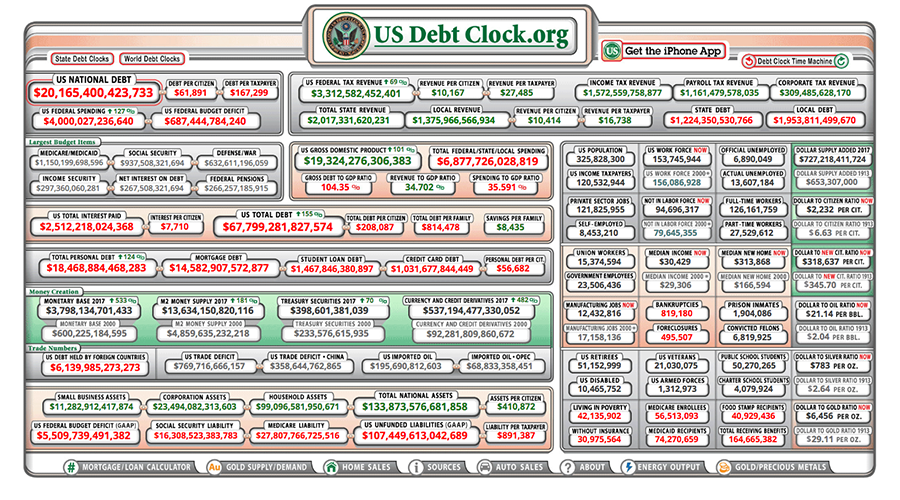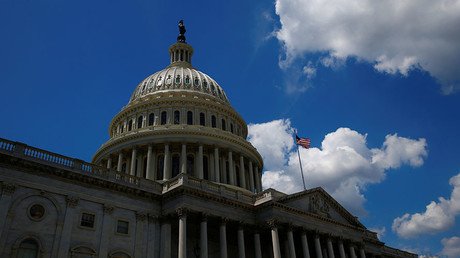US debt to continue soaring after hitting $20tn mark – expert

The US national debt will continue mounting unless the White House implements structural reforms on spending, warns former European Union consultant Paolo von Schirach in an interview with the Sputnik news agency.
"At the moment, there is absolutely no sign that either the Trump administration or the Congress want to seriously overhaul the entitlement programs that are the root cause of this systemic fiscal imbalance," Schirach, president of the Global Policy Institute and professor of international affairs and economics at BAU International University in Washington, DC, told Sputnik on Tuesday.
The US debt officially broke the $20 trillion mark after President Donald Trump signed a law to suspend the debt ceiling until December 8, allowing the US Treasury to borrow money until then.

According to von Schirach, vast borrowing is in the very structure of US politics and society.
"The deficits are structural. As a consequence, we keep adding to the national debt, year after year. The deficits and hence the national debt are caused by the inability to finance major entitlement programs through tax revenue," Schirach said.
The situation is likely to get worse in the future, and the mounting debt would be a burden for further generations.
"Entitlement spending now comprises more than 60 percent of total federal spending; and it is destined to grow on account of the increased number of retirees who, by the way, live much longer and therefore collect much more," he said.
Schirach admits the US still has a good credit history and investors are willing to lend money to Washington. However, "a government, little by little, discovers that it can do less and less because it has no longer any discretionary cash," he said.
The problem has also been admitted by the Congressional Budget Office (CBO), a federal agency that provides budget and economic information to Congress. It estimates the federal debt held by the public is now at its highest level since shortly after World War II, and that the deficit would reach 150 percent of GDP in 2047.
Mounting debt increases government interest costs, puts additional pressure on the budget, and improves the chances of a fiscal crisis, the agency admits.













